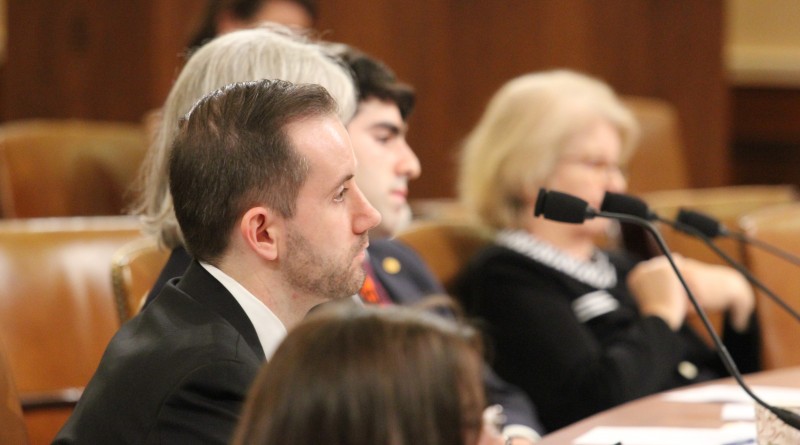Freedom of speech restrictions an issue at universities
By: Erick Payne – Scripps Howard Foundation Wire
WASHINGTON – Freedom of speech is a constitutional right for all Americans, but students are finding it increasingly difficult to express their opinions on some campuses that actively work to discourage or impede free speech.
“Many other schools continue to wrongly invoke their 501(c)(3) status to stifle political speech on campus, especially during election years,” Rep. Peter Roskam, R-Ill., chair of the House Oversight Subcommittee for Ways and Means, said at a hearing Wednesday. “Let’s get something straight: Section 501(c)(3) does not require schools to prohibit student political activity on campus.”
The 501(c)(3) is a section of the Internal Revenue Code that defines nonprofit institutions, including most public and private colleges and universities, as tax-exempt. Taxpayers essentially give financial benefits to schools based on the educational value they offer.
“Institutions often cite their tax-exempt status to justify banning political activity by students on campus or forbidding them to use university resources, broadly defined, for political purposes,” Catherine Sevcenko, director of litigation for Foundation for Individual Rights in Education, said.
The IRS has concluded that the restriction on political activity does not apply to individual academic community members, Sevcenko said. Since FIRE’s founding in 1999, the organization has won 385 cases for students and faculty at 250 colleges and universities, advancing freedom of expression for over 3.5 million students.
Private universities are not the only higher educational institutions that have attempted to impose limits on speech. Private universities have no legal requirements for freedoms, but public universities have a legal obligation to allow students to speak freely. That’s because the First Amendment refers only to government suppression of speech.
The University of Oklahoma sent an email to its community during the 2008 election cycle stating that personal university email accounts “may not be used to endorse or oppose a candidate, including the forwarding of political humor/commentary.” OU President David Boren revoked the email after extensive criticism.
“I just think it’s completely unacceptable for any university, especially public, legally,” Joshua Zuckerman, a Princeton senior and founding member of the Princeton Open Campus Coalition. “That’s why we’re there – to discuss, learn, listen to others’ ideas and scrutinize our own.”
Zuckerman founded the coalition to maintain Princeton’s vibrant culture after Princeton students led by the Black Justice League occupied President Christopher Eisgruber’s office in November and issued demands, including creation of cultural spaces on campus and cultural training.
Students should never feel as though they aren’t able to speak out, “especially in the United States of America,” Rep. Mike Kelly, R-Pa., said.
“The very first amendment to the Bill of Rights allows us to have free speech. … I don’t care what kind of college it is, private or public,” Kelly said. “I think it’s absolutely chilling that we have to have this kind of hearing to expose what’s going on.”
Photo: Witnesses say students at many colleges and universities face problems engaging in political speech on campuses. Alexander Atkins, a law student at Georgetown University, says attempts to campaign on campus for presidential candidate Sen. Bernie Sanders, D-Vt., were repeatedly shut down. SHFWire photo by Erick Payne.

